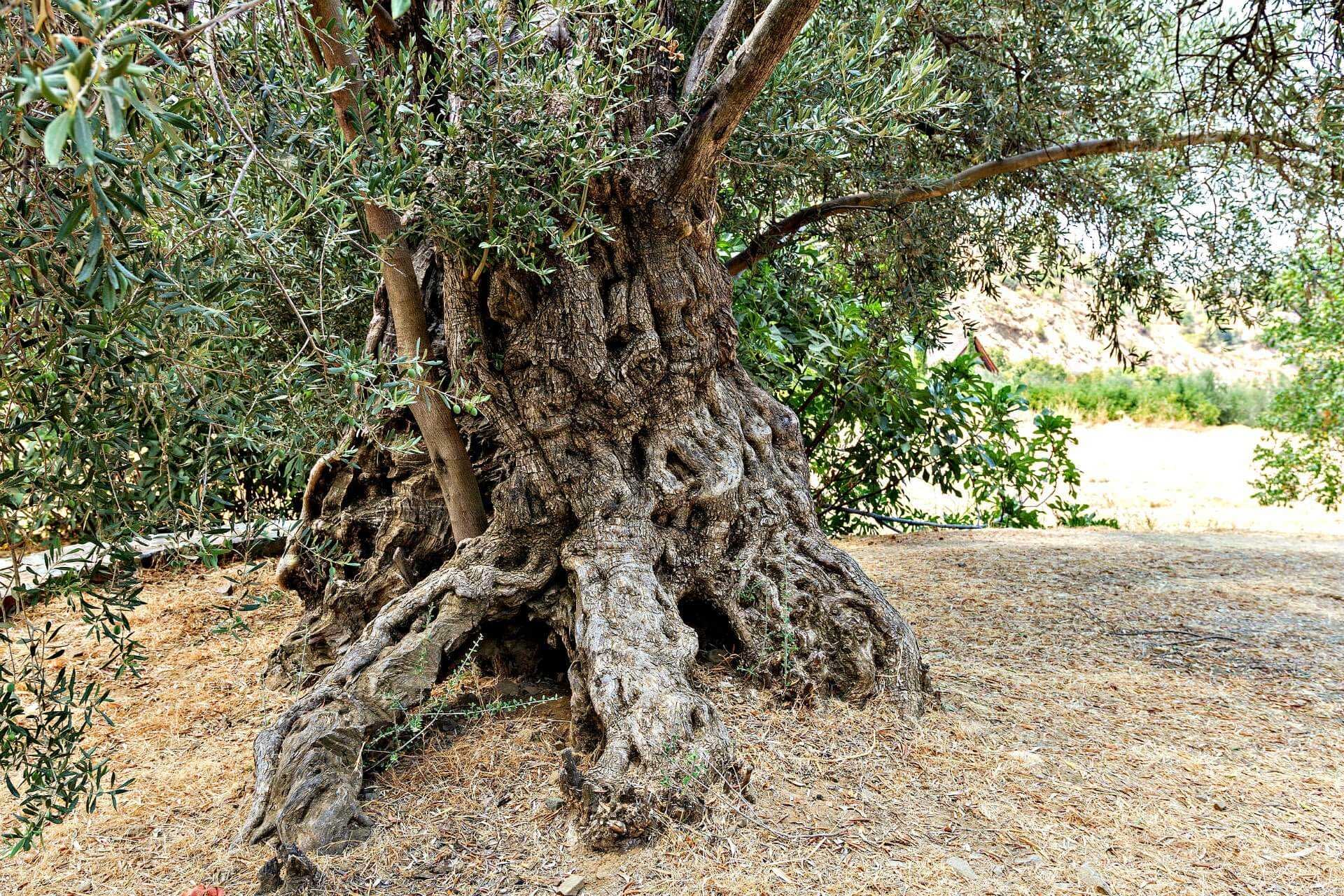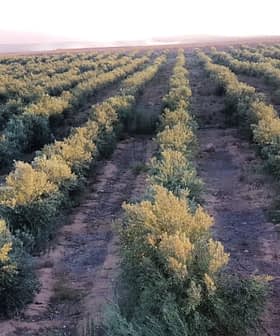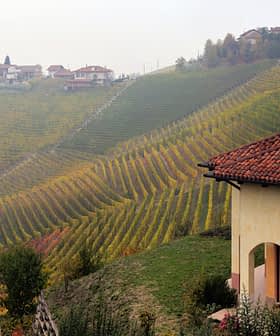Monumental Trees of Cyprus Represent Attempt to Create Elite Cultivar
Researchers speculate that early olive growers had grafted native centennial trees with others imported from Greece and Lebanon to selectively breed for desirable traits.
 Holy Ancient orthodox Christian church of Aaint, Agia Paraskevi, at mountain village of Askas in Cyprus
Holy Ancient orthodox Christian church of Aaint, Agia Paraskevi, at mountain village of Askas in CyprusA recent study of monumental olive trees in Cyprus has shed light on a sometimes calculated, but always complicated agricultural history.
“Based on the data of the current study it is safe to formulate the conclusion that oleiculture in Cyprus has a complex history,” Nikolaos Nikoloudakis of Cyprus University of Technology wrote.
The richness in genetic resources is probably the outcome of the early domestication of olive trees in Cyprus that occurred in antiquity
“It is possible that hybridization between local and or foreign material, followed by the selection of elite genotypes has repeatedly occurred in different eras with the goal of ameliorating the existing genotypes.”
Researchers from Cyprus University of Technology and Agricultural University of Athens found a diverse amount of genetic material among these iconic olive trees. Since these trees range from hundreds to thousands of years old, the researchers see the preservation of this gene pool as immensely important for the future of olive trees.
“These are trees that have withstood extensive and severe biotic and abiotic adversities; hence constitute a valuable and unexploited genetic pool,” said Andreas Katsiotis also of Cyprus University of Technology.
The researchers used government records and field studies to identify and sample 52 trees across northern Cyprus. They took DNA samples from the leaves of each of the trees and compared them with a benchmark of 20 known Greek cultivars.
The researchers suspect that the original olive growers were trying to create an elite cultivar of olive trees using an agricultural technique known as grafting, which involves combining parts of two or more plants so they grow together as one.
Much to their surprise, they discovered that two-thirds of the monumental olive trees that were sampled had been grafted.
This finding led researchers to speculate that early olive growers had grafted the original centennial trees with others imported from Greece and Lebanon in order to selectively breed for desirable traits. Eventually, the practice ceased and these grafted trees started to reproduce naturally.

“The richness in genetic resources is probably the outcome of the early domestication of olive trees in Cyprus that occurred in antiquity, while genetic variability accumulated through time,” Nikoloudakis wrote. “Hence, these entries [samples] represent an unexploited gene pool.”
Grafting was previously thought to be a technique that had been used for hundreds of years. However, these findings are proof that it may have been used thousands of years ago as an organized and extensive procedure.
As a result of the grafting all the genetic diversity within the population could be traced back to only a portion of the centennial trees.
“This was a revelation since selection of elite cultivars since antiquity is evident. As a result, the modern Cypriot varieties resulted from an assortment of a few ancient elite clones,” Katsiotis said. “Furthermore, this means that there is still a lot of genetic diversity ‘out there’ to be utilized in order to produce adapted varieties with high superior attributes.”
The genetic diversity that is “out there” could be used to breed trees that yield more olives as well as are more resistant to disease and adverse climatic conditions, if the correct genes are found within the population.
“Elite cultivars are better than others in major agronomic traits including resistance of biotic and abiotic stresses and high yield potential,” said Young-Chan Cho of the National Institute of Crop Science in Japan.
Among these traits, Cho suggested that breeding elite cultivars may also be useful for resisting insects. The olive fruit fly is the main carrier of the olive tree-killing disease, Xylella fastidiosa. Cyprus is among the eight European Union nations most concerned about the disease, but has not suffered major outbreaks such as those seen in Spain, Italy and France.
Katsiotis said that a large pool of genetic diversity is the prerequisite for breeding these elite cultivars. However, more research would need to take place in order to determine whether those traits exist in the Cypriot gene pool.
“Surely these genotypes are well adapted in the dry eastern Mediterranean climate, but we cannot be certain if they will exhibit significant resistance to exotic pathogens without further experimentation,” he said.








